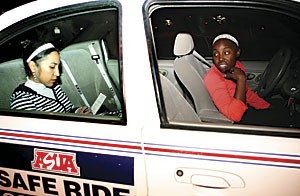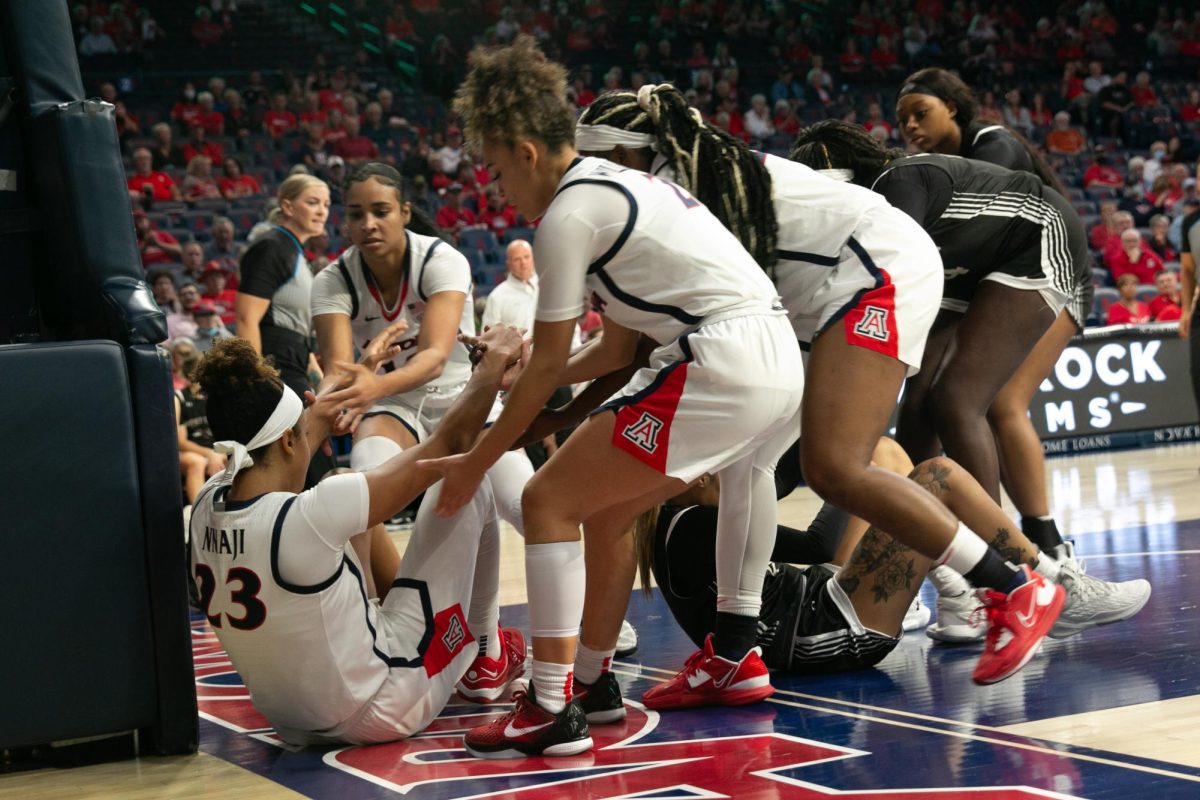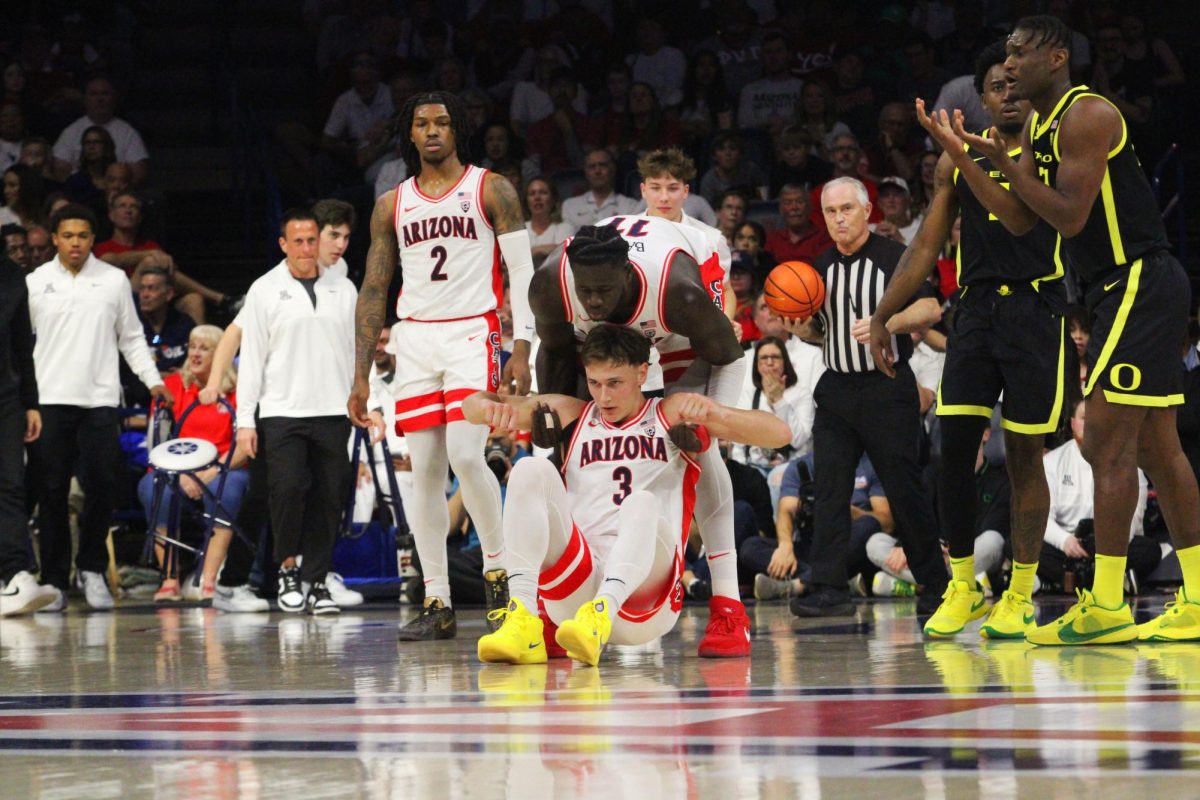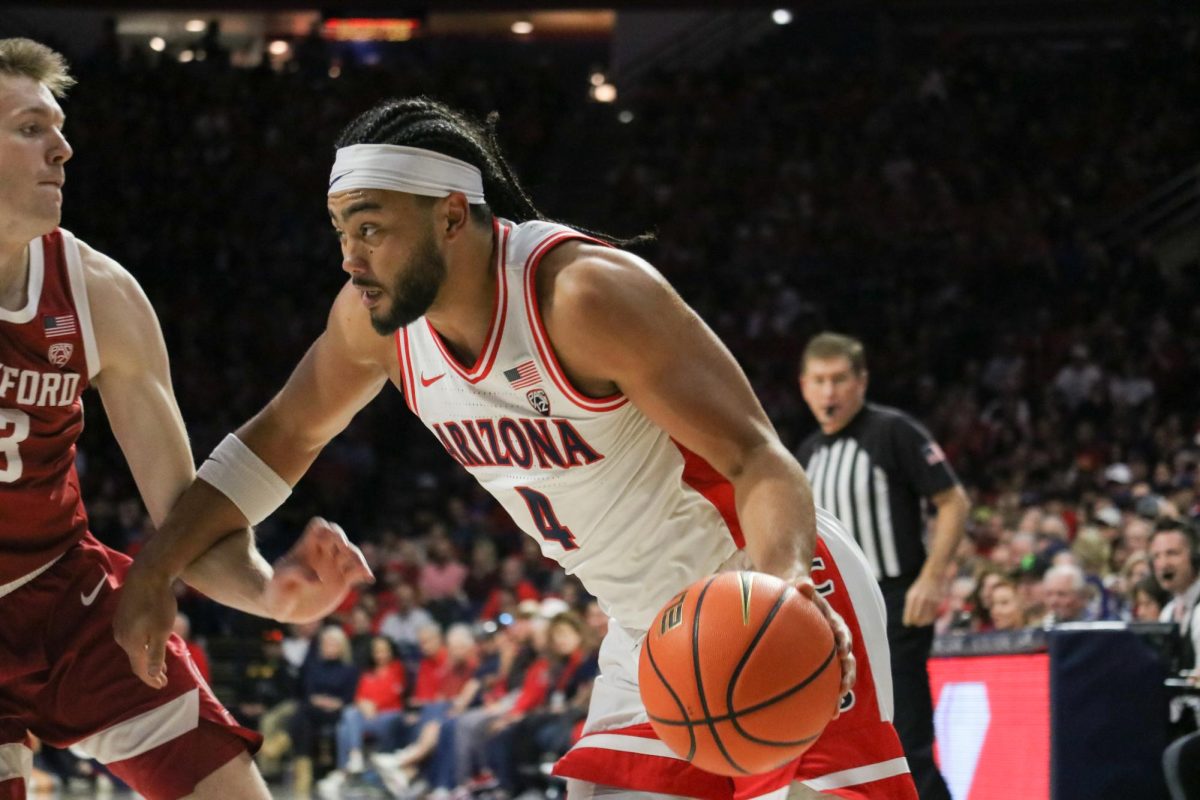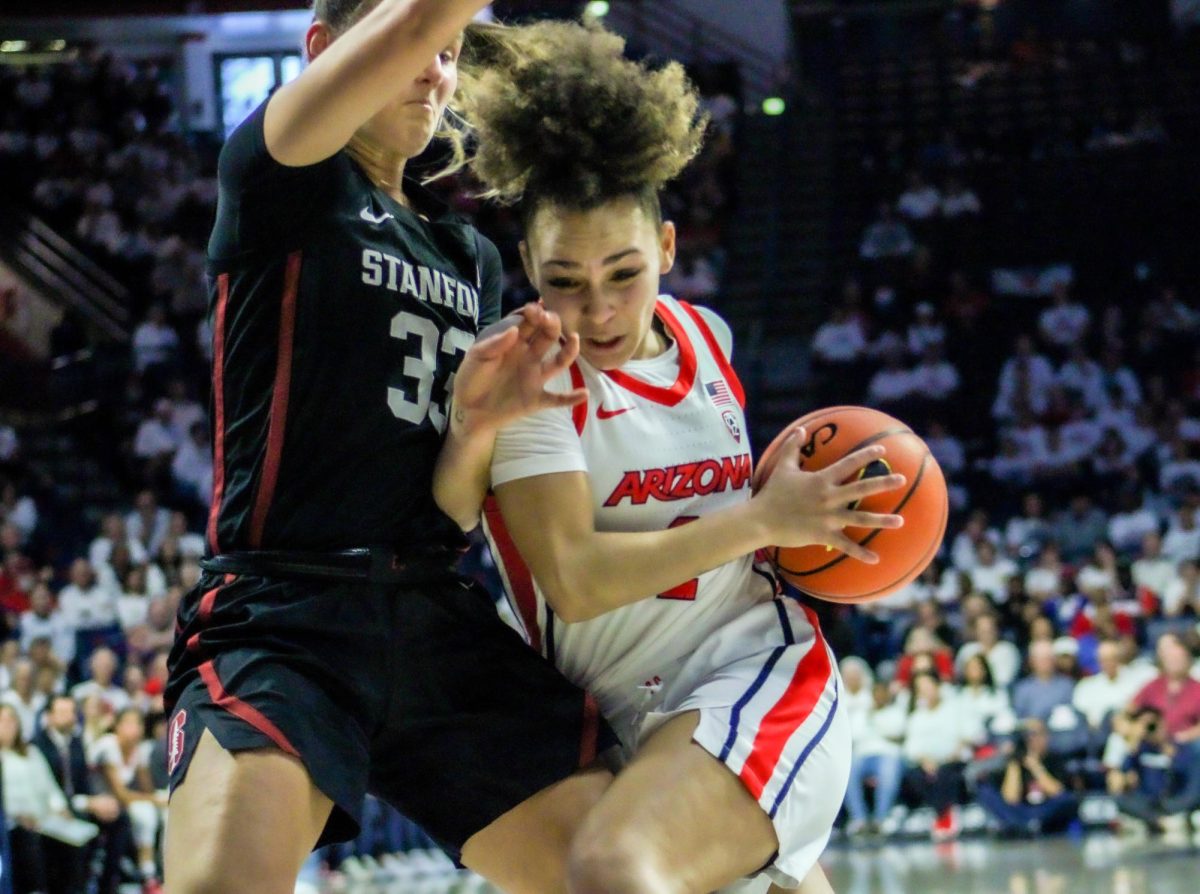On Nov. 26, the University of Arizona Women’s Resource Center will launch a new safety program aimed at keeping the UA community safe as they trek across campus.
The program, Safe Walk, pairs a student with two escorts equipped with cell phones and flash lights, and runs from 7:30 p.m. to 11:30 p.m. Monday through Friday, said Carly Thomsen, director of the WRC.
Safe Walk aims to provide a faster alternative to students who may normally use SafeRide to only travel a few blocks.
“”Campus safety has become a big concern this year,”” Thompson said.
“”Any student, faculty or staff that is going from one on-campus location to any other on-campus location can call and two people will come and escort them to whatever location they are seeking to go to,”” Thomsen said.
Part of the reason the program was implemented is because SafeRide is so busy, Thomsen said.
SafeRide, a free car-ride program for places around the UA community, has peaked at about 450 people on a Thursday night, said Brittany Smith, SafeRide administrative director and economics junior.
“”We understand it’s really difficult to get through on our phone lines sometimes,”” she said. “”It takes people a while to get through and then they have to wait on hold for usually not more than five minutes, and then it takes hopefully seven minutes for the car to arrive.””
Lack of phone lines, and the distance some students need to travel in the SafeRide cars slows down the process for others who may only need the car for a few blocks, Thomsen said.
“”Logistically that makes sense, except that means people living on campus, or if you get out of class at 9 at night like I know a lot of grad students do, you’re stuck. And its kind of scary walking around at night when there’s nobody else around,”” Thomsen said.
Safe Walk will help ease that burden, she added.
Students who are only concerned about walking a short distance would benefit more from the Safe Walk program and alleviate demand on SafeRide, letting students who need to travel farther distances get more of a priority, Smith said.
SafeRide was originally a nighttime volunteer escort service founded in 1981 and was called the ASUA Escort Service, Smith said.
The program began using cars in the 1990s and evolved into the SafeRide program today, she said.
That basic escort program is being brought back in the form of Safe Walk.
Briana Dorrenbacher, WRC intern and psychology and women’s studies senior, said she thinks the Safe Walk program will catch on quickly with students who don’t want to wait around but need a safer alternative to getting home.
“”I feel like the U of A really needs to improve the safety on our campus,”” Dorrenbacher said. “”I think that a lot of students will find it a great resource.””
The 2007 University of Arizona Police Department Annual Campus Safety and Security Report shows two sexual assaults, 13 aggravated assaults, 30 assaults, and nine robberies reported on campus in 2006.
“”If it can make women, and people in general, feel safer walking around campus at night, that’s the goal of the program,”” Thompson said.
The Women’s Resource Center received a $16,400 grant from the Parents and Family Association to fund the Safe Walk project.
SafeRide is currently operating on a much larger ASUA budget of $100,000 a year, plus a $28,000 grant from the Parents and Family Association and an additional $50,000 that Smith said the administration approved because of the recent focus on safety issues.
The WRC is currently hiring and training eight interns to work as escorts one night a week, receiving a $500 paycheck a semester for one night of work per week, Thomsen said.
Both men and women can apply, and are expected to be involved in other projects with the Women’s Resource Center, she added.
“”It allows you to be connected to these bigger issues, and work on addressing issues that impact women,”” Thompson said. “”The thing we’re most excited about is being able to provide another service to students.””
Safe Walk and SafeRide are complimentary but completely separate programs, and students should not expect the phone numbers to be interchangeable, Thomsen said.
To request a Safe Walk escort, starting Nov. 26 students can call 471-5262 after 7:30 p.m. Monday through Friday.



